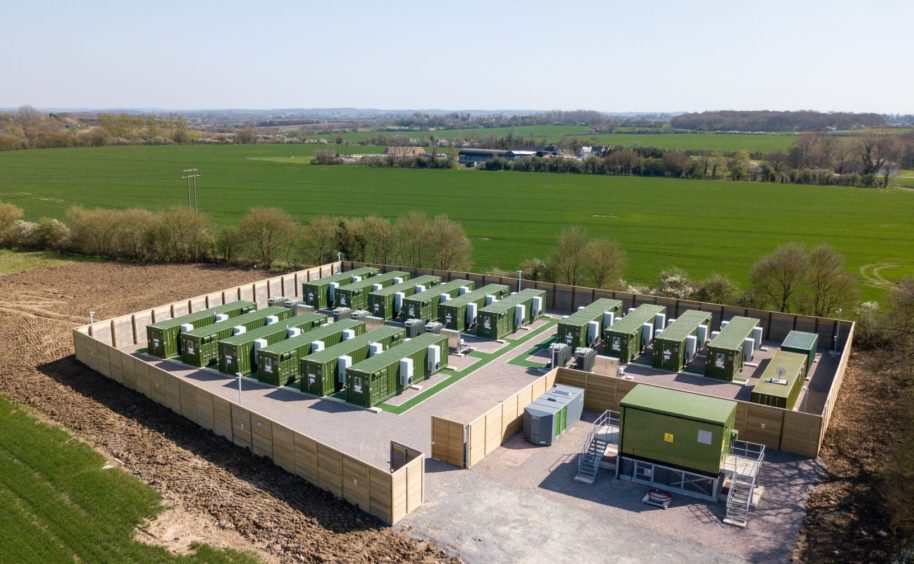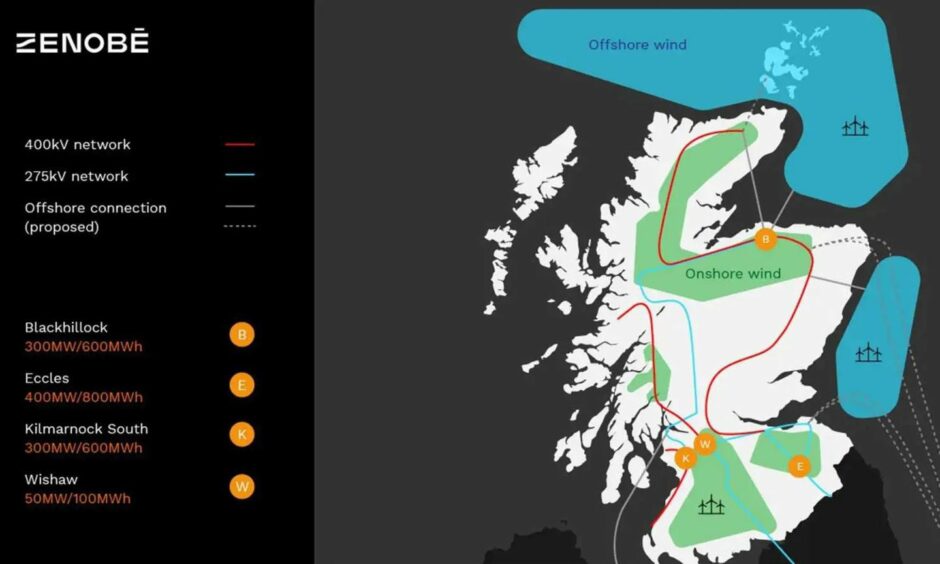
Zenobe has begun construction on £750 million worth of battery storage projects across Scotland which it says will help save more than £1bn in curtailed offshore wind power.
The investment spans four sites at Blackhillock near Keith, Kilmarnock, Wishaw and Eccles, all chosen for their proximity to vital transmission networks.
The latter comprises the largest facility at 400MW/800MWh, followed shortly by Blackhillock and Kilmarnock at 300MW/600MWh, and Wishaw at 50MW/100MWh.
Construction at the Blackhillock site began this month with the first 200MW phase of the facility due to go live in some time in the first half of 2024. Other plants will follow in late 2024 and early 2026.
Founded in 2017, Zenobe operates both battery storage plants and electric vehicle fleets and infrastructure across the UK.
The latest build out takes its total portfolio in Scotland to 1050MW/2100MWh and equates to more than the total MWh of all grid-connected batteries operating in the UK today.
The company says that over their 15 years of operation, the sites are expected to avoid up to 13.4m tonnes of CO2. It’s the equivalent of taking 490,000 diesel or petrol cars – more than all cars in Glasgow and Edinburgh combined – off the road over that time frame.
The batteries are also forecast to lower consumers bills by over £1 billion by reducing the curtailment of windfarms over the same period.
All projects are contracted to provide stability services to National Grid Electricity System Operator (NGESO) support the influx of more renewables. They will operate under the first commercial contracts in the world to use transmission connected batteries to provide short-circuit level and inertia, essential for the grid to function efficiently as fossil fuel plants phase out.
Crucially, Zenobē will provide 4.4GVAs of inertia, equivalent to 5-10% of the UK’s total requirement.
Inertia is typically provided by spinning components such as steam or gas turbines, which rotate at the right frequency to help balance supply and demand and can spin faster or slower if needed. (This acts like shock absorbers in a suspension, which dampen the effect of a sudden bump).
However, renewable generation typically doesn’t provide this – and as large polluting power plants are switched off, more flexible solutions are needed to provide this function.
Julian Leslie, Head of Networks at NGESO hailed the contract as a “turning point”, adding: “Investment into the use of new technologies by innovative companies like Zenobē is bringing this ambition nearer. The investment into these three major projects represents a turning point in how major grid scale battery storage can support the grid as fossil fuel generation is phased out.”
The Wishaw facility is also the first to win a constraint management contract from NGESO and will be the first in Scotland to connect directly to the Transmission network when it goes live in 2023.
Zenobē co-founder and director James Basden added: “Our projects at Blackhillock, Kilmarnock South and Eccles are world-firsts for battery storage, addressing a key, complex hurdle to the uptake of renewables in an innovative way and pushing forward our progress to energy independence and a zero-carbon grid.
“At a time of increasing energy prices and the need for greater energy security, this is the type of investment which the UK needs now to drive growth, and which will enable both the country and Zenobē to become leaders in delivering the energy transition.”
 © Supplied by Zenobe
© Supplied by Zenobe